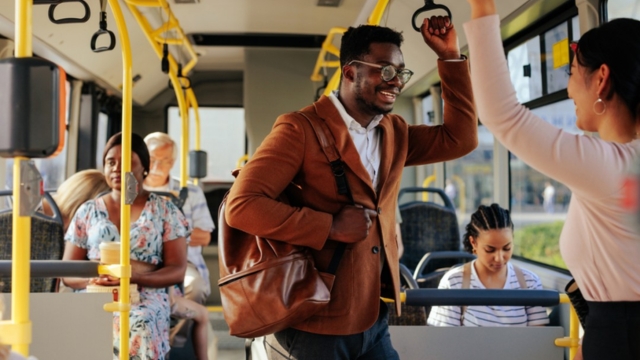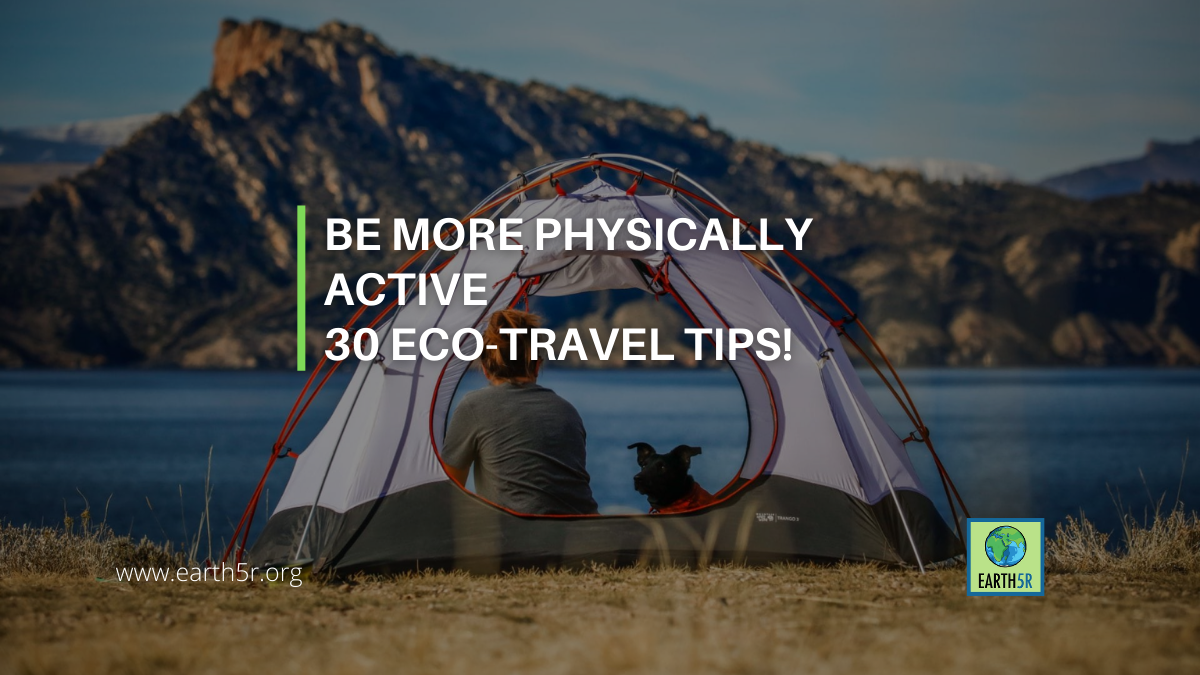BE MORE PHYSICALLY ACTIVE
There are so many ways you can reduce your emissions and carbon footprint and save money by modifying some of your everyday behaviors. The added benefit: relying less on your vehicle often means you’re getting more exercise and living a healthier lifestyle and Eco-travel! Hint: some of these tips could be implemented school-wide and used as application material for a Green in Action award!
ECO-TRAVEL How To Take Action:
- Take a train instead of flying.
- Take public transportation.
- Bike to school or work whenever possible.
- Drive the speed limit – fuel economy decreases above 60 mph. Driving 5mph over 60 mph is like paying an extra 24 cents per gallon.
- Carpool to school or work if biking or walking is not an option.
- Use cruise control as much as possible – maintaining a consistent RPM reduces fuel consumption. Mileage can increase by up to 7 percent!
- Keep tires inflated to the recommended level and improve fuel economy by up to 3.3 percent.
- Avoid excessive idling.
- Remove excess weight from your car to increase fuel economy.
- Substitute or eliminate a food item that is shipped from overseas. Check your produce for a Country of Original Label before buying.
- Use a clean diesel vehicle for group trips – according to the EPA; clean diesel vehicles produce 90 percent fewer emissions than regular diesel engines.
- Take the stairs instead of an elevator when climbing a few flights.
- Avoid quick acceleration and heavy braking – it can reduce fuel economy by 33 percent on the highway.
- Walk or bike when doing errands around town.
- Plan your errands so you can get them done all in one trip rather than multiple short trips.
- Maintain your vehicle – a poorly maintained engine doesn’t run as efficiently as it could.
- Consider purchasing a more fuel-efficient or hybrid vehicle.
- Reduce your leisure air travel to one trip per year or less.
- Sell your vehicle and sign up for a car-sharing program.
- Drive instead of flying if the trip is less than 400 miles.
- If you must fly, purchase non-stop flights – jets burn the most fuel at takeoff and flying direct avoids excess distance covered.
- Work from home when you can.

ECO-TRAVEL When You’re On The Road:
- Use public transportation or share a cab.
- Eat vegetarian.
- Remove your shoes before coming inside to avoid tracking pesticides and other residues into your home.
- Don’t purchase food and drinks that are served in styrofoam.
- Look for a hybrid or electric cab if you need to use one.
- Seek out a hotel with greening strategies in place or a green building certification.
- Seek out a locally-sourced restaurant.
- Always reuse your hotel’s sheets and towels.
What Is Earth5R’s Home Equals Planet Project?
Home Equals Planet is an initiative comprising 15 tangible actions that citizens take on an individual level. These are a step toward a sustainable planet and a healthier lifestyle. The actions promote simple actions like eating home-cooked food, segregating waste, spending time in nature, and so on.
Home Equals Planet: 15 Actions to Change the World
The 15 actions are associated with the UN Sustainable Development Goals and aim to create a better future for all by 2030. Home Equals Planet covers areas like Waste Management, Health, creating a Circular Economy, etc.
A Sedentary Lifestyle Is The 4th Leading Risk Factor For Death.
Regular exercise can reduce the probability of Cancer By 50% According to WHO.
Physical exercises improve flexibility, bone density, and muscle strength. It prevents many ailments associated with a sedentary and inactive lifestyle like diabetes, cancer, and cardiovascular diseases.
Exercising is also key to better mental health as the body releases endorphins and serotonin during exercise which helps lower stress and anxiety and it helps reduce health care expenses.
But how can you save the environment by working on your health?
We are a part of the environment. Keeping ourselves and the community healthy directly influences the health of society and the environment.
To read more of such articles, please visit https://earth5r.org.
Source: Transportation Tips – Green Education Foundation | GEF | Sustainability Education



